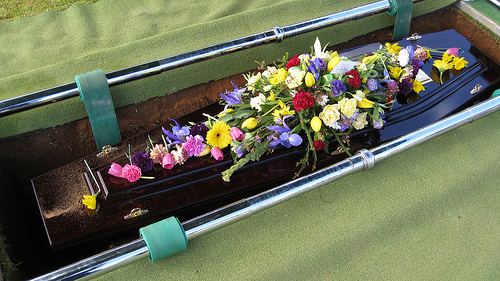Death is Not Failure
Death is Not Failure
As I am preparing this newsletter, I am awaiting a call from a longtime colleague with the knowledge that it will be the last time we have a chance to talk. Recently diagnosed with multiple brain tumors that are inoperable she has chosen to let her life run its course and to enjoy what quality time she can for as long as the tumors allow. Tragic, sad, emotional; you bet, but not a failure, as far as we can tell, on anyone’s part. Remember I said before, death is not an option. Fortunately, her healthcare providers understand this type of terminally ill planning.
In this day and age so many healthcare providers feel like they have failed if they are unable to cure their patients. They frequently continue to offer alternative treatments when they know that the chances of doing anything truly helpful are miniscule. They talk about end of life planning matters extending life, but not about the quality of that life. They are also confronted by patients and/or loved ones who want “everything” done. They offer treatments that they themselves would not take were they in the same condition. The healthcare professionals’ role in life has always been to make people better, to cure them, and when they can’t they feel inadequate or like they have failed so they keep trying even as hope wanes. It is a reasonable response considering their training focuses on the cure. But, death is just a part of life and it is sometimes best to accept.
As you might guess, the call came before I had finished this. I was floored. In fact my friend was ecstatic when I spoke with her. Hard to believe isn’t it? She kept telling me how wonderful it is to have time to talk with people who love her and who share with her what a difference she has made in their lives. She said that this truly has been the best experience of her life and she is so pleased that her life will be ending this way because she never really thought that she had made a difference in anyone’s life.
She’s living fully in the moment. She is making plans for the “celebration” of her end of life, when she is gone and where to scatter her ashes. And given the advent of the Internet and advanced technology tools today, there are many new memorial technology options for cremations. She has made peace with what is happening to her and is embracing the experience better than anyone I have ever met. Surely there are down times but to everyone with whom I have spoken who has spoken with her they all are getting the same vibe.
Death for her is not a failure but truly is an experience she is cherishing. Talk about acceptance! And yes, she has her advance directives in order.
The bigger question is when will you: Have ‘The Conversation’ And Give ‘The Gift’
Courtesy of M Jane Markley Consulting





